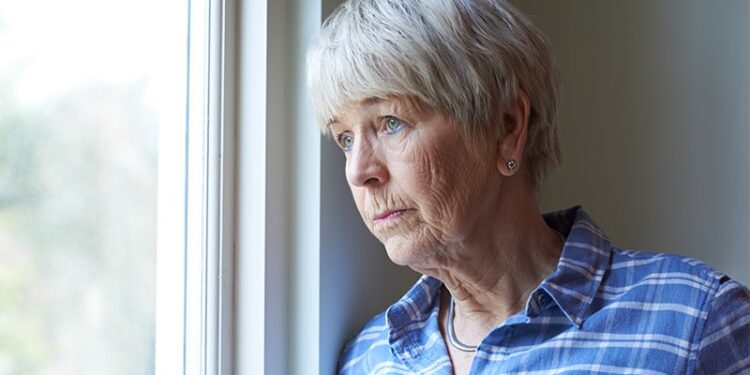TOPLINE:
Frequent loneliness was associated with a higher probability of depression and an increased number of poor mental and physical health days per month than never feeling lonely in a new survey-based study. Additionally, significant disparities were observed across sex, race/ethnicity, and age groups.
METHODOLOGY:
- Investigators assessed data for more than 47,000 US adults (62% women; 73% White individuals) obtained from the Behavioral Risk Factor Surveillance System between 2016 and 2023.
- They analyzed the potential association between loneliness and key health outcomes, including a diagnosis of depression and the self-reported number of days in the past month with poor mental or physical health.
- Participants self-reported the frequency of feeling lonely, which was categorized as always, usually, sometimes, rarely, and never.
TAKEAWAY:
- Participants who reported always, usually, sometimes, and rarely feeling lonely had a significantly higher probability of depression (50%, 48%, 31%, and 16%, respectively; P < .001 for all) than those who reported never feeling lonely (10%). Those who reported always feeling lonely had 10.9 more poor mental health days and 5 more poor physical health days in a month on average than those who were never lonely (P < .001 for all).
- Women had a higher probability of depression than men across all loneliness levels (P < .001). There was also a significantly greater number of poor mental health days in women vs men who felt lonely sometimes (mean difference, 0.8 days; P = .002) and rarely (mean difference, 0.7 days; P = .003).
- Black and Hispanic individuals reporting loneliness had significantly lower probabilities of depression than their White peers (P < .05 for both). Among participants who felt always lonely, Black individuals reported fewer poor mental health days (mean difference, -3.8 days; P = .005) and fewer poor physical health days (mean difference, -3.6 days; P = .01) in a month than White individuals.
- Middle-aged (45-64 years) and older adults (> 64 years) with loneliness reported a greater number of poor physical health days in a month than younger adults (18-44 years) across all loneliness categories (P < .001 for all). However, older adults had a significantly lower risk for depression than younger adults across most loneliness levels.
IN PRACTICE:
“Addressing loneliness may not only improve individual well-being but also reduce societal healthcare burdens,” the investigators wrote.
“The findings of this study carry urgent policy and practice implications. Given the pervasiveness and potency of loneliness, it should be prioritized alongside traditional risk factors in public health planning,” they added.
SOURCE:
The study was led by Oluwasegun Akinyemi, MD, PhD, Howard University College of Medicine, Washington, DC. It was published online on July 9 in PLOS One.
LIMITATIONS:
Key limitations included the study’s cross-sectional design, residual confounding by unmeasured factors, and its reliance on self-reported measures. Additionally, telephone-based survey methods may have underrepresented the most socially isolated individuals.
DISCLOSURES:
The study was funded in part by the National Institute on Minority Health and Health Disparities. The investigators reported having no relevant conflicts of interest.
This article was created using several editorial tools, including AI, as part of the process. Human editors reviewed this content before publication.
Source link : https://www.medscape.com/viewarticle/loneliness-may-drive-depression-poor-physical-health-2025a1000jkm?src=rss
Author :
Publish date : 2025-07-24 06:16:00
Copyright for syndicated content belongs to the linked Source.








